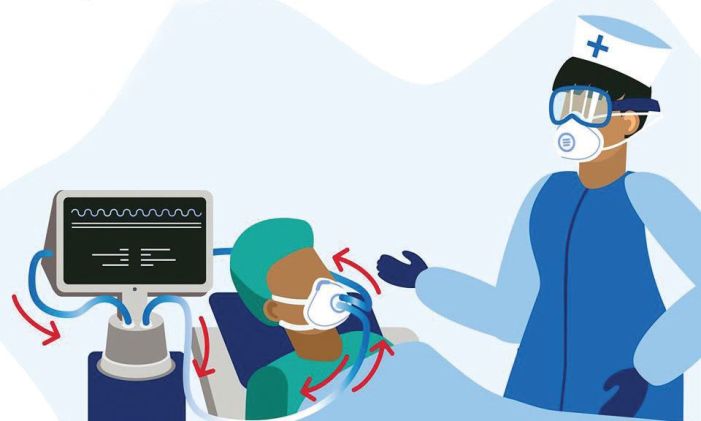Physical inactivity is linked to more severe COVID-19 infection and a heightened risk of dying from the disease finds a large US study published online in the British Journal of Sports Medicine.
Patients with COVID-19 who were consistently inactive during the 2 years preceding the pandemic were more likely to be admitted to hospital, to require intensive care, and to die than were patients who had consistently met physical activity guidelines, the findings show.
As a risk factor for severe disease, physical inactivity was surpassed only by advanced age and a history of organ transplant.
Several risk factors for severe COVID-19 infection have been identified, including advanced age, male sex, and certain underlying medical conditions, such as diabetes, obesity, and cardiovascular disease.
But physical inactivity is not one of them, even though it is a well known contributory risk factor for several long term conditions, including those associated with severe COVID-19, point out the researchers.
To explore its potential impact on the severity of the infection, including hospital admission rates, need for intensive care, and death, the researchers compared these outcomes in 48,440 adults with confirmed COVID-19 infection between January and October 2020.
The patients’ average age was 47; nearly two-thirds were women (62%). Their average weight (BMI) was 31, which is classified as obese.
Around half had no underlying conditions, including diabetes, COPD, cardiovascular disease, kidney disease, and cancer; nearly 1 in 5 (18%) had only one, and almost a third (32%) had two or more.
All of them had reported their level of regular physical activity at least three times between March 2018 and March 2020 at outpatient clinics. This was classified as consistently inactive (0–10 mins/week); some activity (11–149 mins/week); or consistently meeting physical activity guidelines (150+ mins/week).
Some 7% were consistently meeting physical activity guidelines;15% were consistently inactive, with the remainder reporting some activity.
White patients were most likely to consistently meet physical activity guidelines (10%), followed by Asian patients (7%), Hispanic patients (6%) and African-American patients (5%).
Some 9% of the total were admitted to hospital; around 3% required intensive care; and 2% died. Consistently meeting physical activity guidelines was strongly associated with a reduced risk of these outcomes.
After taking account of potentially influential factors, such as race, age, and underlying medical conditions, patients with COVID-19 who were consistently physically inactive were more than twice as likely to be admitted to hospital as those who clocked up 150+ minutes of physical activity every week.
They were also 73% more likely to require intensive care, and 2.5 times more likely to die of the infection.
And patients who were consistently inactive were also 20% more likely to be admitted to hospital, 10% more likely to require intensive care, and 32% more likely to die of their infection than were patients who were doing some physical activity regularly.
This is an observational study, and as such, can’t establish cause. The study also relied on patients’ own assessments of their physical activity. Nor was there any measure of exercise intensity beyond the threshold of ‘moderate to strenuous exercise’ (such as a brisk walk).
But the study was large and ethnically diverse. And the researchers point out: ”It is notable that being consistently inactive was a stronger risk factor for severe COVID-19 outcomes than any of the underlying medical conditions and risk factors identified by [The Centers for Disease Control] except for age and a history of organ transplant.
“In fact, physical inactivity was the strongest risk factor across all outcomes, compared with the commonly cited modifiable risk factors, including smoking, obesity, diabetes, hypertension [high blood pressure], cardiovascular disease and cancer.”
They conclude: “We recommend that public health authorities inform all populations that short of vaccination and following public health safety guidelines such as social distancing and mask use, engaging in regular [physical activity] may be the single most important action individuals can take to prevent severe COVID-19 and its complications, including death.
“This message is especially important given the increased barriers to achieving regular [physical activity] during lockdowns and other pandemic restrictions.”

 Surpassed only by advanced age and organ transplant as a risk factor, large study shows
Surpassed only by advanced age and organ transplant as a risk factor, large study shows





















.jpeg)

.jpeg)










.jpg)




.jpg)

